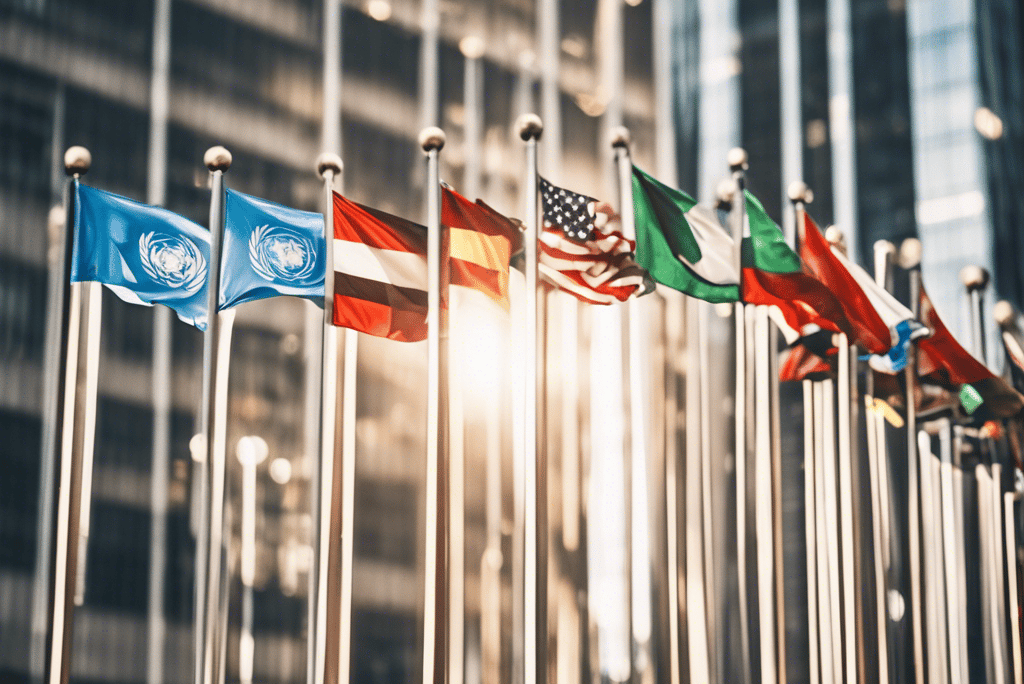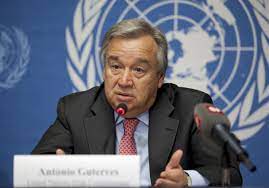The P5 Dilemma: How the UN's Power Structure Undermines World Peace and Equality
In this opinion piece, we delve into the inherent challenges posed by the P5 system within the United Nations, comprised of the United States, the United Kingdom, France, China, and Russia. The article explores how this exclusive power structure impedes the UN's capacity to foster global peace and equality, with a call for urgent reforms to better represent the diverse voices of the international community in the 21st century.
Crisis Mitigation Bureau
12/8/20233 min read


In theory, the P5 system was conceived to ensure a balance of power and prevent unilateralism. However, in practice, it has fostered a culture of entrenched interests, resulting in a Security Council that often struggles to reach consensus on critical issues. The Gaza crisis highlights how the allegiance of certain P5 members can stymie efforts to address urgent humanitarian needs and prevent further escalation of conflicts.
Moreover, the P5 system perpetuates an outdated and undemocratic power dynamic that marginalizes the voices of smaller nations. The unequal distribution of power within the UN undermines the principles of equality and fairness that the organization ostensibly upholds. The vast majority of UN member states find themselves on the periphery, unable to wield influence proportionate to their global significance.
To achieve genuine progress towards world peace and equality, it is imperative to reevaluate the P5 system and its veto powers. The veto, originally conceived as a safeguard against rash decisions, has transformed into a tool that protects the interests of a select few at the expense of the greater good. Reforms should be considered to democratize the Security Council and ensure that decisions are made in the interest of the entire international community, not just a privileged minority.
Furthermore, the P5 should be held accountable for their actions and inactions that perpetuate injustice and inequality. The international community must demand transparency, ethical conduct, and a commitment to the overarching principles of the UN Charter. The current system, marked by geopolitical maneuvering and power plays, is incompatible with the ideals of a just and equitable world.
In conclusion, while the United Nations remains an indispensable forum for global cooperation, the P5 system acts as a stumbling block to achieving the lofty goals outlined in the organization's charter. The recent events surrounding the Gaza crisis underscore the urgent need for a reexamination of the power dynamics within the UN. It is time to break free from the chains of an outdated system and forge a new path toward a more inclusive, democratic, and effective global governance structure—one that truly serves the interests of all nations and advances the cause of world peace and equality.
(With AI Input)
Context:
UN Secretary-General Antonio Guterres has invoked Article 99 of the UN Charter to urgently appeal to the Security Council for a humanitarian ceasefire in the Israel-Hamas conflict. This marks the first time Guterres has utilized Article 99 since becoming UN Secretary-General in 2017. The move aims to avert a "humanitarian catastrophe" in the region, emphasizing the severe risks to Palestinians and regional peace. The invocation of Article 99 is considered a rare and impactful constitutional move within the UN, signaling the gravity of the situation in Gaza.
Uses of Article 99 of UN:
Article 99 of the UN Charter has been rarely invoked in the organization's 78-year history. In the past, the Secretaries-General brought matters to the Security Council on threats to peace and security in 10 instances. The last specific mention of Article 99 occurred in a report by U Thant, addressing the deteriorating situation along the borders of East Pakistan and in the broader subcontinent.
P5's Potent Veto Power- A Potential Barrier to the Invocation of UN's Article 99:
Given the P5's veto power, their cooperation or lack thereof can either facilitate or hinder the Secretary-General's efforts to address urgent situations. Their collective response shapes the Council's actions and underscores the delicate balance of power in the UN, influencing the organization's ability to effectively intervene in crises and maintain global stability.


In the grand theater of international diplomacy, the United Nations (UN) stands as a symbol of collective hope and shared responsibility. However, lurking beneath the surface of this global institution lies a structural flaw that has consistently hindered progress in achieving world peace, equality, and justice – the P5 system.
The P5, consisting of the United States, the United Kingdom, France, China, and Russia, wield disproportionate power within the UN, especially through their veto authority in the Security Council. This power structure, intended to reflect the geopolitical realities of a post-World War II era, has become an impediment to meaningful action and a stumbling block to a more equitable world order.
The recent invocation of Article 99 by UN Secretary-General Antonio Guterres in response to the Gaza crisis is a poignant example of the P5's stranglehold on the organization's decision-making processes. While Guterres called for urgent action to avert a humanitarian catastrophe, the divisions among the P5, notably the support for Israel's military actions by the United States and Britain, showcase the limitations imposed by this exclusive club.
Contacts
enquiry@economicnations.org
(xx) 98-11-937-xxx (On verification)
